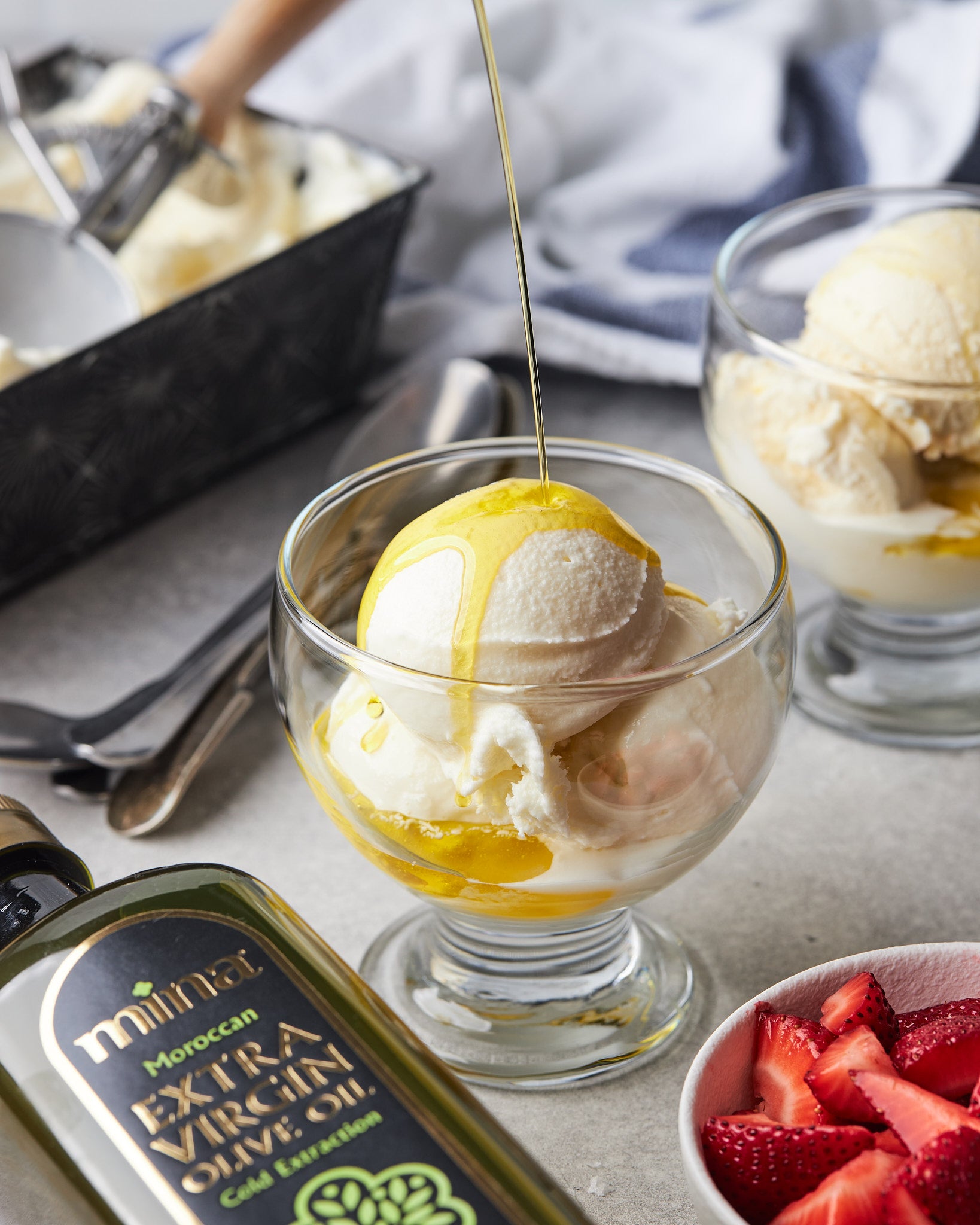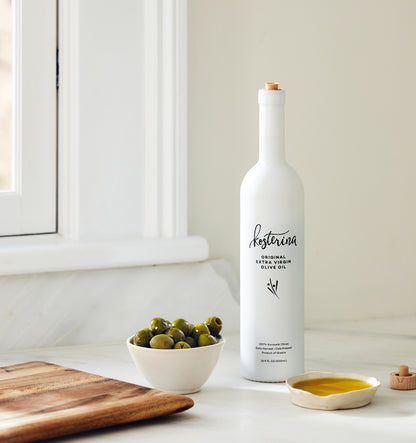Checking Out the Different Types of Olive Oil and Their Usages, Consisting Of Extra Virgin Olive Oil
The expedition of olive oil includes a diverse variety of types, each offering culinary applications and distinctive flavors. Extra virgin olive oil, renowned for its exceptional top quality and health advantages, serves as a staple in lots of kitchens, yet it is only one aspect of this complex ingredient.
What Is Olive Oil?
Originated from the fruit of the olive tree, olive oil is a staple in Mediterranean food and a key component in different cooking applications. This versatile oil is created by pushing entire olives, causing a liquid that varies in scent, taste, and shade depending on the kind of olives used, the area of cultivation, and the removal procedure. Olive oil is mostly composed of monounsaturated fats, especially oleic acid, which is understood for its prospective health and wellness benefits, consisting of anti-inflammatory homes and cardiovascular support.
Along with its cooking usages, olive oil has a lengthy background of application in standard medicine and skincare, owing to its abundant antioxidant material (extra virgin olive oil benefits). The oil is frequently made use of in dressings, marinades, and for cooking approaches such as sautéing and roasting. Its distinct taste account can boost the taste of different recipes, making it an essential ingredient for both home cooks and professional cooks
In addition, olive oil is celebrated for its function in the Mediterranean diet plan, which is connected with various health advantages. As recognition of these benefits grows, olive oil continues to obtain appeal worldwide as an essential component of a healthy way of living.
Kinds Of Olive Oil
Understanding the numerous sorts of olive oil is essential for both cooking enthusiasts and health-conscious customers. Olive oil is categorized mostly based on its extraction technique and quality, which dramatically impacts its wellness, flavor, and fragrance benefits.

Light olive oil, in spite of its name, refers to a lighter flavor and not lower calories. It is perfect for those seeking an extra refined taste in sauces and dressings. Furthermore, there are flavorful olive oils infused with natural herbs, seasonings, or citrus, which can improve dishes without the demand for extra seasoning.
Each kind of olive oil serves specific cooking objectives, and recognizing these distinctions permits customers to make enlightened options that align with their food preparation styles and wellness objectives.
Extra Virgin Olive Oil
Bonus virgin olive oil (EVOO) is widely considered the best quality olive oil available, renowned for its rich taste and various wellness benefits. To be identified as additional virgin, the oil must be created from fresh olives using mechanical procedures, without the use of solvents or too much heat. This careful method protects the oil's all-natural flavors, anti-oxidants, and healthy fats, leading to an item with a low level of acidity degree of less than 0.8%.
EVOO is plentiful in monounsaturated fats, specifically oleic acid, which is linked to lowered inflammation and enhanced heart wellness. It also consists of polyphenols, powerful antioxidants that might supply protective impacts versus persistent diseases. The flavor account of EVOO can differ substantially depending on the olive variety and region of manufacturing, varying from grassy and fruity to durable and sharp.

Culinary Uses of Olive Oil

In cooking, this content olive oil can be utilized for sautéing, roasting, and barbecuing, supplying a much healthier option to butter or various other fats. Its high smoke factor makes it appropriate for different cooking techniques, while its antioxidants add to a heart-healthy diet regimen. Showering olive oil over finished dishes, such as pasta, fish, or grilled vegetables, can boost flavors and include a touch of beauty.
Moreover, olive oil plays a considerable role in cooking, where look at this website it can change standard fats in recipes for bread and pastries, presenting dampness and a subtle taste. It additionally works as a base for infused oils, allowing cooks to explore flavors such as garlic, natural herbs, or chili, additionally broadening its culinary possibility. Generally, olive oil's flexibility makes it essential in both home and professional kitchen areas.
Picking Top Quality Olive Oil
When choosing quality olive oil, it's vital to think about several vital aspects that influence the item's aroma, taste, and health advantages. Decide for extra virgin olive oil (EVOO), which is obtained from the initial cold pressing of olives and has the greatest degrees of antioxidants and useful substances. Look for oils that are accredited by identified organizations, as this typically makes certain adherence to stringent high quality criteria.
The product packaging also plays a significant function in maintaining the oil's integrity. Choose oils kept in dark glass containers or tins to shield against light degradation. Take note of the harvest day; fresher oils supply superior flavor and nutritional value, so choose products that are within 18 months of their harvest.
Additionally, take into consideration the beginning of the oil. High-quality olive oils frequently come from certain areas understood for their unique taste accounts, such as Italian, Spanish, or Greek oils. Ultimately, understand the taste; a high quality olive oil should have a balance of fruity, bitter, and peppery notes, indicating its richness and intricacy. By assessing these elements, you can ensure you are choosing the best olive oil for your cooking demands.
Conclusion
In recap, the exploration of different types of olive oil reveals unique qualities and applications, with extra virgin olive oil standing for the peak of high quality due to its reduced acidity and high antioxidant content. Its convenience in culinary usages enhances tastes in dressings, marinates, and drizzles. Recognizing the different varieties of olive oil permits for notified selections in food preparation methods, advertising healthier techniques while enriching the total gastronomic experience. Quality choice continues to be vital for optimal advantages.
Derived from the fruit of the olive tree, olive oil is a staple in Mediterranean this link cuisine and a crucial ingredient in different culinary applications.The most usual types of olive oil consist of improved olive oil, pure olive oil, and light olive oil.Additional virgin olive oil (EVOO) is commonly concerned as the highest quality olive oil available, renowned for its rich taste and many health advantages. Opt for added virgin olive oil (EVOO), which is obtained from the initial cold pressing of olives and has the highest possible levels of antioxidants and beneficial compounds.In summary, the exploration of different kinds of olive oil discloses distinctive characteristics and applications, with additional virgin olive oil representing the pinnacle of high quality due to its reduced level of acidity and high antioxidant web content.
Comments on “Extra Virgin Olive Oil Benefits: How It Supports Healthy Cholesterol Levels”